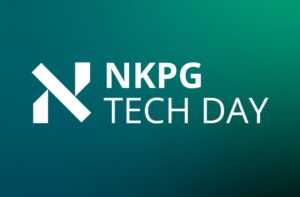Energy Systems Are Increasingly Becoming Digitalised
Digital technologies are transforming how energy is produced, managed, and consumed. This digitalization is making energy systems more connected, intelligent, efficient, reliable, and sustainable. For example, smart grids use digital technology to monitor and manage the transport of electricity from all generation sources to meet the varying electricity demands of end users. This helps improve the efficiency and reliability of electricity distribution. Additionally, digital tools are being used to optimize operations in energy supply, such as predictive maintenance and real-time monitoring.
The current transformation in conventional aviation and the Advanced Air Mobility sector has the potential to revolutionize transport sector energy use by aiming for net-zero or plus-energy airports, ensuring 100% renewable regional energy supply. Many initiatives support the EU’s ”Fit for 55” package, targeting a 55% reduction in emissions by 2030, and align with United Nations Sustainable Development Goals 7, 9, 13, and 17. Infrastructure for aviation, such as airports and vertiports, will play a crucial role in supporting the transition to an electrified aviation market.

Airports are transforming into energy hubs through innovative ways of renewable energy production within preexisting facilities. If scaled up across Europe, they could generate 75 TWh of renewable electricity annually, meeting half of Sweden’s needs. Globally, this could produce 1,600 TWh, equivalent to the electricity needs of ten Sweden. More importantly, it will meet the growing needs of the electrified aviation and drone sectors of the future.
Airports can produce fuel using off-peak grid electricity, reducing dependency on local energy, lowering carbon footprints, and serving as a model for other industries. Drones, powered by renewable energy, offer a very cost-efficient last-mile delivery, reducing emissions and traffic congestion. Vertiports, designed to be smaller-scale hubs and distribution centers of renewable energy, can enhance aerial logistics by becoming essential service hubs, enabling operations in both urban and remote rural areas. This will provide improved societal services, such as better emergency response times, and facilitate both cargo and passenger flights.
Are you a company that works with innovations and solutions supporting the transformation of aviation related infrastructure?
Aero EDIH supports SMEs and public sector organizations in accelerating their digital transformation within the aviation and aerospace industries. By providing access to cutting-edge digital technologies, technical testing, and skills development, Aero EDIH empowers organizations to leverage advancements in digitalization, high-performance computing, and cybersecurity. Companies working in these domains are encouraged to apply for support from Aero EDIH to enhance their competitive edge and contribute to a sustainable future.
We look forward to receiving your application!
















